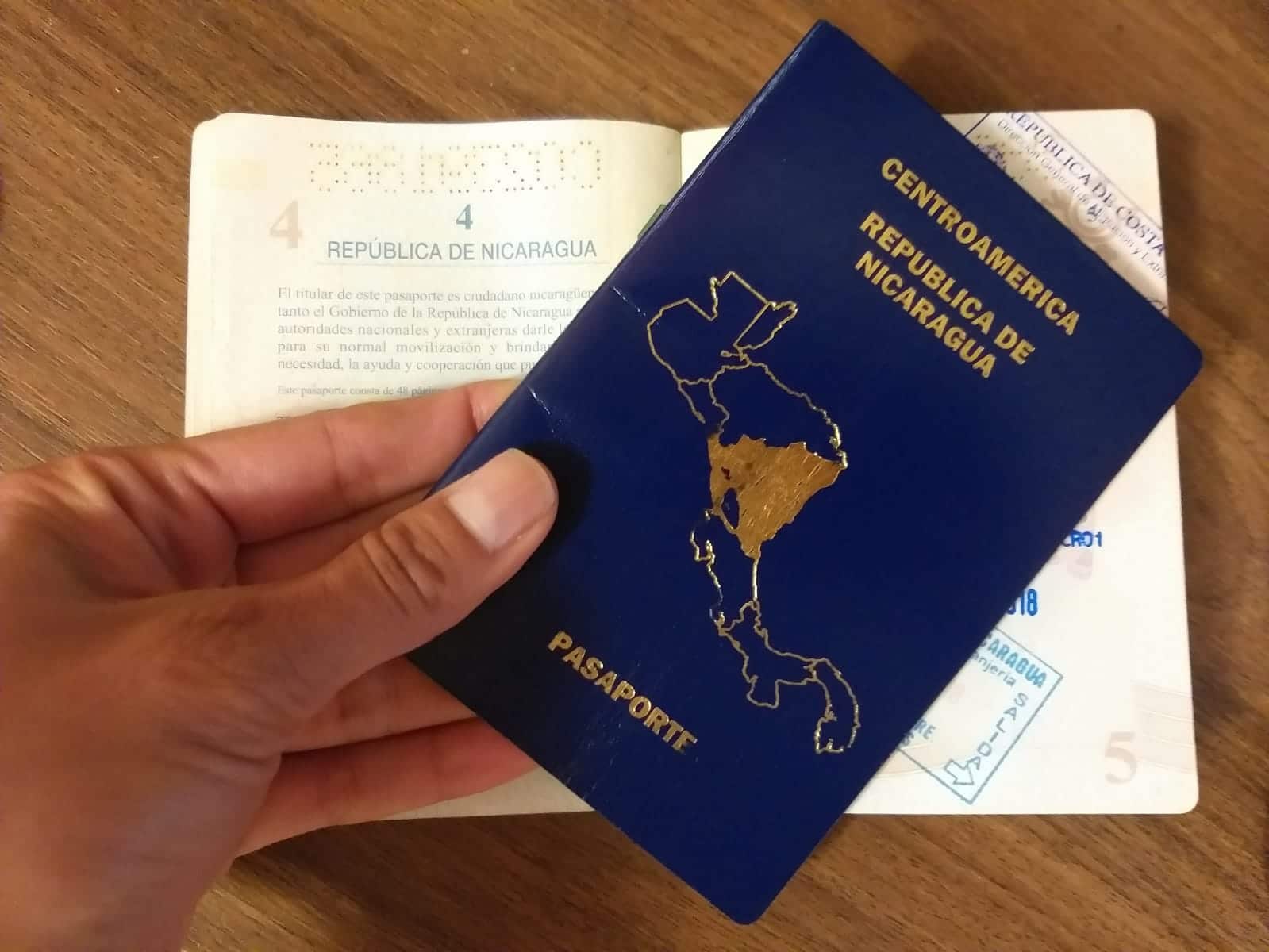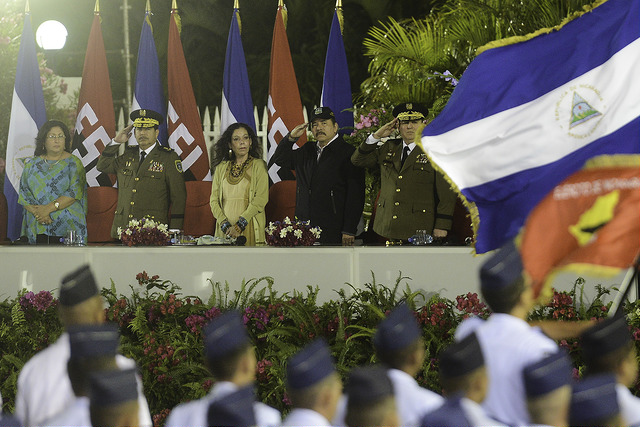15 de agosto 2018

Nicaragua: Public Employees Hindered from Traveling to USA

PUBLICIDAD 1M
PUBLICIDAD 4D
PUBLICIDAD 5D
Nevertheless, their answers to these questions are still pending

Daniel Ortega and the head of the Nicaraguan Army, Julio Cesar Aviles, at an official event in Managua. Photo: Carlos Herrera / Confidencial
Over five weeks ago, via both telephone calls and e-mails, Confidencial has been requesting an interview with the head of the Army, General Julio Cesar Aviles, or with another representative of this institution.
Our objective as a professional communications media is to offer the Nicaraguan Army a chance to inform and explain more broadly what they’ve expressed in their press communiques regarding the national crisis.
After a number of requests, the Department of the Press and Public Relations of that institution, under the responsibility of Colonel Manuel Guevara, asked us to forward them a list of questions that they would answer in writing.
Three weeks has passed since we sent these questions to them, along with the request for a response. However, the Army has still neglected to answer Confidencial’s ten questions which appear below:
1) What’s the position of the Nicaraguan Army regarding the grave national crisis in government that has left more than 317 dead and 1,800 wounded since April 18?
2) What instructions has the Army received from the Nicaraguan President since the crisis began?
3) What specific missions has the President assigned to the Army? Have you carried out an evaluation of the situation and coordinated with the National Police?
4) The report from the OAS Inter-American Commission for Human Rights states that the principal causes of the loss of human lives have been the excessive use of force on the part of the police, utilizing lethal weapons; the state violence; and the use of para-police forces.
What’s the Army’s appraisal of this report and of the consequences of the repression?
5) The Army has said that’s it’s willing to comply with the results of the National Dialogue.
Have you exchanged views regarding the National Dialogue with the Mediation Commission headed by the Episcopal Conference? Have you had any exchanges with the Civic Alliance regarding the National Dialogue? Have you had any interchanges with the government regarding the National Dialogue?
6) In the Army’s judgment, what is the scope of the National Dialogue, and what type of political agreements do you hope it will produce, in order to support them?
7) The National Dialogue, with the consensus of the government delegation, assumed a commitment to back the fifteen recommendations stated in the report from the OAS Inter-American Commission for Human Rights, including the demand that the para-police groups be disarmed and dismantled.
How does the Army view this agreement of the National Dialogue and the fact that it hasn’t been complied with up until now?
8) Article 95 of the Nicaraguan Constitution states: “No additional armed bodies can exist in the national territory, nor military ranks other than those established by law.”
What’s the Army’s position on the existence of illegal armed groups that carry out armed operations either individually or in combination with the National Police?
9) Does the Army believe that such armed groups – some even operating under the flag of a political party – are covered by the Constitution, or are they undermining the Constitutional authority of the Army?
If the activity of these armed groups violates the Constitution, who should be in charge of disarming them and carrying out an investigation to bring them to justice?
10) In the last decade, the Army has combatted illegal armed groups in the rural areas that have been characterized as criminal bands.
Why have the armed forces remained impassive in the face of the illegal armed groups that move about the cities, brandish war weapons, participate in lethal operations and arrest citizens?
Archivado como:
PUBLICIDAD 3M
Confidencial es un diario digital nicaragüense, de formato multimedia, fundado por Carlos F. Chamorro en junio de 1996. Inició como un semanario impreso y hoy es un medio de referencia regional con información, análisis, entrevistas, perfiles, reportajes e investigaciones sobre Nicaragua, informando desde el exilio por la persecución política de la dictadura de Daniel Ortega y Rosario Murillo.
PUBLICIDAD 3D